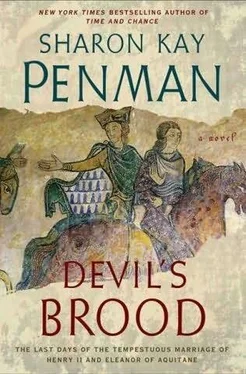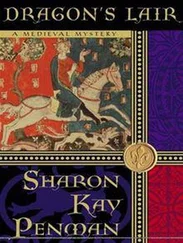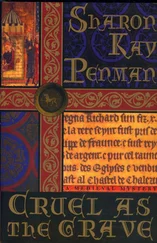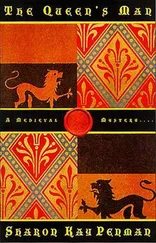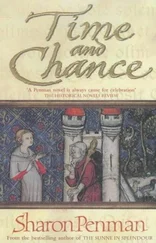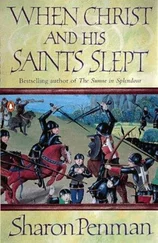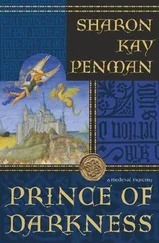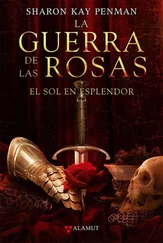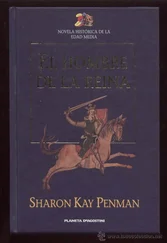Sharon Penman - Devil's brood
Здесь есть возможность читать онлайн «Sharon Penman - Devil's brood» весь текст электронной книги совершенно бесплатно (целиком полную версию без сокращений). В некоторых случаях можно слушать аудио, скачать через торрент в формате fb2 и присутствует краткое содержание. Жанр: Исторические приключения, на английском языке. Описание произведения, (предисловие) а так же отзывы посетителей доступны на портале библиотеки ЛибКат.
- Название:Devil's brood
- Автор:
- Жанр:
- Год:неизвестен
- ISBN:нет данных
- Рейтинг книги:4 / 5. Голосов: 1
-
Избранное:Добавить в избранное
- Отзывы:
-
Ваша оценка:
- 80
- 1
- 2
- 3
- 4
- 5
Devil's brood: краткое содержание, описание и аннотация
Предлагаем к чтению аннотацию, описание, краткое содержание или предисловие (зависит от того, что написал сам автор книги «Devil's brood»). Если вы не нашли необходимую информацию о книге — напишите в комментариях, мы постараемся отыскать её.
Devil's brood — читать онлайн бесплатно полную книгу (весь текст) целиком
Ниже представлен текст книги, разбитый по страницам. Система сохранения места последней прочитанной страницы, позволяет с удобством читать онлайн бесплатно книгу «Devil's brood», без необходимости каждый раз заново искать на чём Вы остановились. Поставьте закладку, и сможете в любой момент перейти на страницу, на которой закончили чтение.
Интервал:
Закладка:
“His resolve ‘briefly weakened,’ did it?” Henry echoed sarcastically. “That is a very kind way to phrase it, Cousin. I believe his exact words to you and the other bishops were, ‘If the king would have me perjure myself, so be it. I will take the oath he demands and hope to purge the sin by future penance.’”
Roger winced, sorry but not surprised that someone had broken the confidentiality of the bishops’ conclave; informants clustered around kings like bees at a hive. “I admit that was not Thomas’s finest hour and his behavior at Clarendon is not easily defended. But I need not remind you, Cousin, that your behavior has not always been defensible either. What matters is how we settle this issue now. Would you be willing to agree not to demand such an oath of your prelates in the future?”
When Henry nodded, Roger glanced toward the Bishop of Lisieux. He had no liking for the other man, but he did not deny that Arnulf was highly intelligent, well educated, and an accomplished diplomat. “That would be a beginning, my lord bishop.”
Arnulf’s smile was both confident and complacent. “Indeed, it would,” he said and gestured toward a parchment sheet filled with scribbles, scratched out words, and ink splatters. “My lord king and I were discussing this very matter ere you arrived. There must be a way to satisfy the cardinals without making an explicit renunciation of the Constitutions. How does this sound? ‘The King of the English vows to abolish any new customs which have been introduced into his realm to the prejudice of the Church.’”
Roger considered the wording. “Yes, that might do it.” Shooting his cousin a sharp look, he said, “This vow is acceptable to you, Harry?”
“Of course. I do not see this as a controversial issue, for I am confident I have not introduced customs detrimental to the Church, for certes not knowingly,” Henry said blandly, and Roger sighed, for he’d expected as much. Fortunately, the papal legates would expect as much, too. They’d not be going into this blind. Remembering that he held a cup of claret, he took a swallow, warmed as much by a surge of optimism as by the wine. It was beginning to look as if both sides might win this war.
Setting his cup down on the table next to Arnulf’s draft, he asked to be excused so that he could wash away the dust of the road. Henry let him reach the door before he asked the question Roger had hoped to avoid.
“Do you not want to know what the cardinals told me about Becket’s killers?”
Roger already knew the answer to that deceptively innocuous query. “It is my understanding that the killers are on their way to Rome to do penance for Thomas’s murder.”
“Yes,” Henry said, “and what penance do you expect the Pope to impose?”
“I would not know,” Roger said untruthfully, a lie that Henry pounced upon with zest.
“What penance can he impose, Roger? To take the cross and journey to the Holy Land. Does that seem sufficient punishment to you for the murder of an archbishop?”
Roger frowned, for Henry had just demonstrated the logical absurdity of the Church’s insistence upon disciplining their own. The Constitutions of Clarendon had been the result, not the cause, of the conflict between Henry and Becket. It had begun with Henry’s desire to make clerics subject to secular law. The Church had long claimed sole authority to judge the offenses of men in holy orders or the crimes committed against them. Even men who’d merely taken religious vows must be tried in ecclesiastical court, not the king’s court. No matter how heinous his transgression, a clerk was beyond the reach of royal justice, and the harshest penalty the Church could impose was degrading, depriving him of his orders.
Henry had been outraged by these mild punishments, and he demanded that clerks convicted of serious crimes in an ecclesiastical court should then be stripped of the Church’s protection and handed over to his courts for sentencing. Roger still remembered the litany of horrific crimes Henry had assembled to bolster his argument: more than one hundred murders committed by clerics in the eight years since he’d become king, including the scandalous case in which an archdeacon poisoned the Archbishop of York and, as punishment, was deprived of his archdeaconry.
Roger remembered, too, the case that sometimes troubled his dreams even now. A clerk in Worcestershire had raped a young girl and slain her father. When Henry insisted that the man be turned over to a royal court, Becket had ordered Roger, as Bishop-elect of Worcester, to imprison the man so he could not be seized by the king’s justices. Roger believed in the principle defended so passionately by Thomas Becket, that the clergy had Christ alone as their king and were not subject to royal jurisdiction. It was easier to argue, though, when the consequences of that principle-the abused daughter and widow of the murder victim-were not kneeling at his feet pleading for justice.
“A pity,” Henry said coolly, “that Thomas was so adamant, so scornful of compromise on the issue of jurisdiction. Had he been more reasonable, his murderers would not have gone free. Ironic, is it not, Cousin?”
Roger could have pointed out that Becket would not have been murdered if Henry had not lost his temper and spoke those fatal words that sent four men to Canterbury Cathedral, thinking they were fulfilling the king’s wishes: What miserable drones and traitors I have nourished and promoted in my household, who let their lord be mocked so shamefully by a lowborn clerk! But he did not, for what purpose would it serve? It would change nothing. He looked at Henry, hearing an echo of his cousin’s hoarse, desperate denial. As God is my witness, those men did not murder him at my bidding. The real pity, he thought, was that Harry’s remorse had faded so fast.
With the mediation of Archbishop Rotrou of Rouen, Bishop Arnulf of Lisieux, and the Archdeacon of Poitiers, peace was made between the English king and the Roman Church. It was agreed that Henry and the papal legates and bishops would ride south to Avranches and Henry would there do public penance for his part in the murder of the Archbishop of Canterbury and receive absolution of his sins.
From the castle battlements, Henry had a superb view of the bay and, in the distance, the celebrated abbey of Mont St Michel. It was one of the marvels of Christendom, built upon a small, rocky island that was entirely cut off from the mainland at high tide. It had a dreamlike appearance, seeming to rise out of the sand and sea foam like a lost vision of God’s Kingdom, its high, precarious perch above the waves so spectacular and dramatic that at first glimpse, pilgrims did not see how it could have been the work of mortal men.
It was low tide now and the dangerous, shifting sands had been laid bare. Henry could see a few tiny figures trudging across those sands toward the abbey, but not as many as would be expected. He knew why, of course. Many of the pilgrims had delayed their crossing upon hearing that the King of England would be doing penance upon the morrow at Avranches’s cathedral of St Andrew the Apostle. That would be a sight to behold, a rare tale to bring back to their towns and villages upon completion of their pilgrimages.
Henry narrowed his eyes, as much at that unwelcome thought as at the unrelenting gusts of sea-borne wind, belying spring’s calendar with its chill. Glancing at his closest companion, he said, “It has been far too long since I visited your abbey. Mayhap we can make time ere I must depart for Caen. When was I there last-when I came with Louis?”
Abbot Robert pretended to ponder the question; as if he did not have every one of the king’s stays seared into his memory like a brand! A royal visit was the greatest honor imaginable, but it was also a great expense and a great strain, for the striving after perfection on such an occasion was both exhausting and utterly elusive. Thinking of Henry’s sojourn with the French king, he smiled at the memory, for it had always amazed him that Henry should have been able to win over the man who’d been Eleanor’s first husband. Of course that unlikely peace had not lasted, but it had endured long enough for Henry to arrange an even more unlikely marriage between his eldest son, Hal, and Louis’s daughter, Marguerite, child of the woman he’d wed after divorcing Eleanor.
Читать дальшеИнтервал:
Закладка:
Похожие книги на «Devil's brood»
Представляем Вашему вниманию похожие книги на «Devil's brood» списком для выбора. Мы отобрали схожую по названию и смыслу литературу в надежде предоставить читателям больше вариантов отыскать новые, интересные, ещё непрочитанные произведения.
Обсуждение, отзывы о книге «Devil's brood» и просто собственные мнения читателей. Оставьте ваши комментарии, напишите, что Вы думаете о произведении, его смысле или главных героях. Укажите что конкретно понравилось, а что нет, и почему Вы так считаете.
